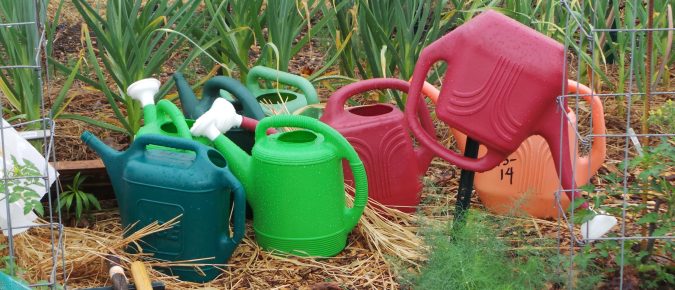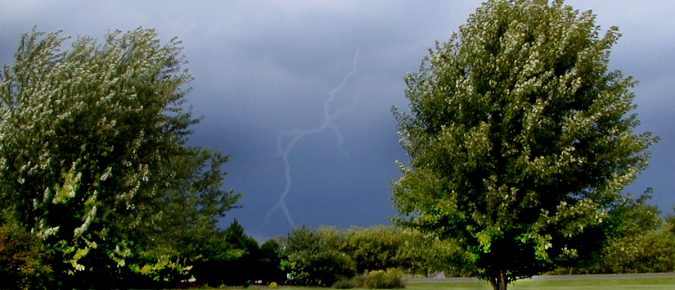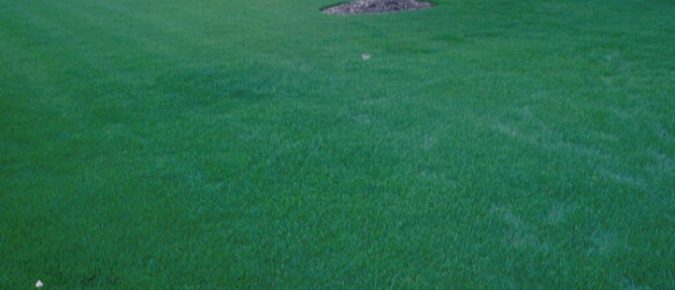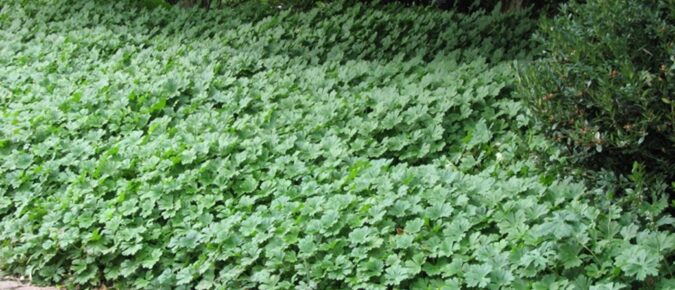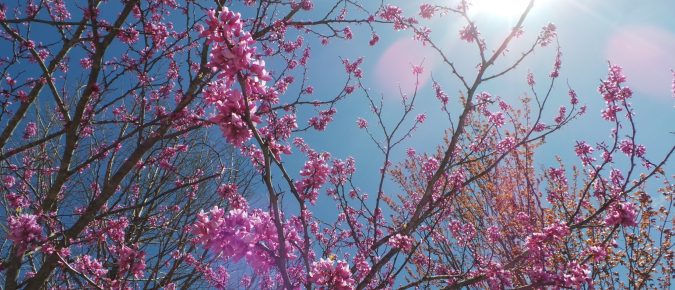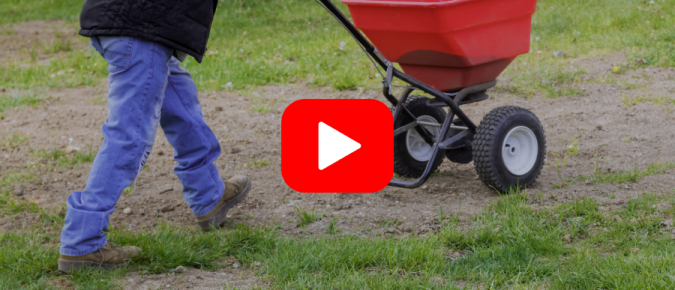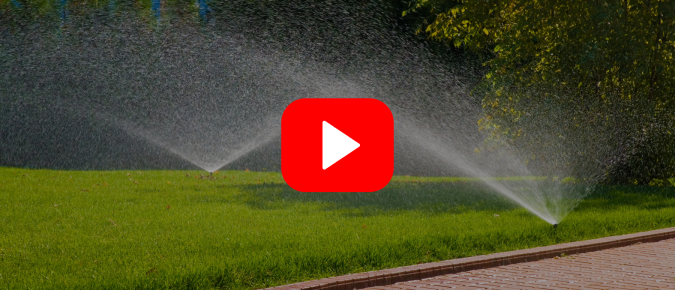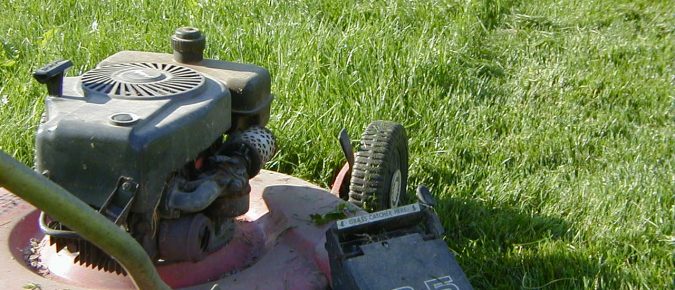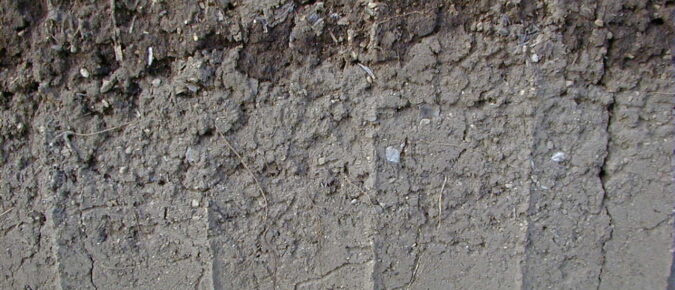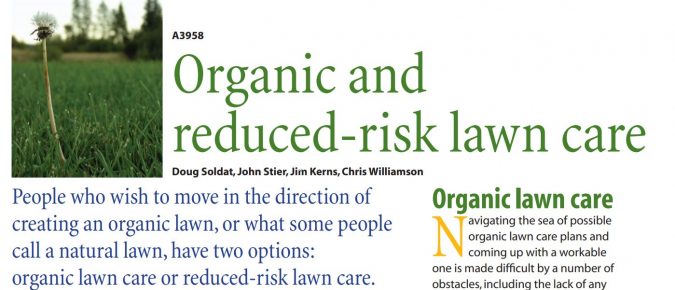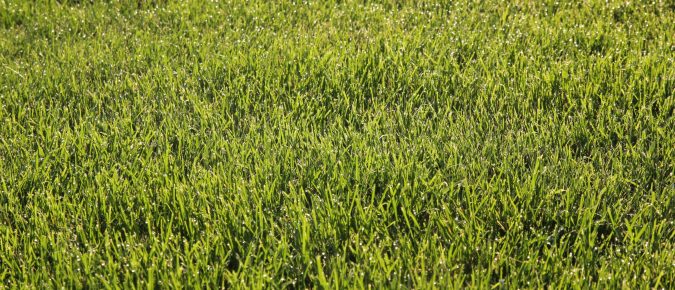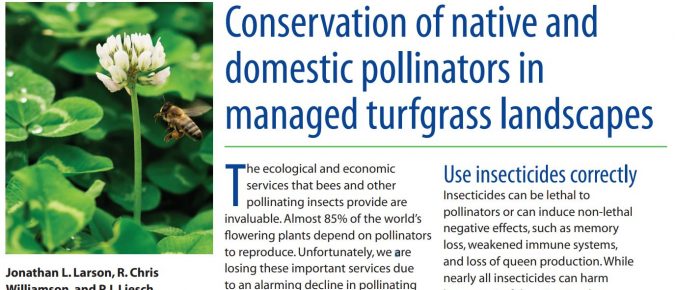As Wisconsin experiences more extreme heat and drought, knowing how your plants are affected and what you can do in these situations will help you make decisions about your gardening.
When Wisconsin experiences extreme precipitation, it is important to know how your plants are affected and what you can do in these situations so you can make informed decisions in your garden.
Properly timed cultural practices are key to healthy problem free lawns. Learn more about cool-season lawn care practices, including seeding, fertilizing, weed control, repair, and renovation and their optimum timing in Wisconsin.
Groundcover plants are low growing perennials that spread by trailing stems and cover an area of the ground. Groundcovers provide an excellent alternative for turfgrasses in shade and other tough areas in the landscape. Established groundcovers require relatively low maintenance, outcompete weeds, reduce soil erosion, provide habitat for pollinators, and enhance aesthetic beauty in the landscape.
Have you heard about “No Mow May?” Many people have committed to not mowing their yards in May, allowing flowering plants to grow to help provide food for pollinators. Before you stow away your mower for May, let’s look at what options you can take to help pollinators this Spring.
Fall is a key time for many maintenance activities that support a lush, healthy lawn. Learn about fertilizer recommendations, aeration and overseeding, weed control, and more.
In this webinar, you will learn about the water requirements for most plants, how proper watering practices can prevent plant diseases, and different ways to conserve water for your yards and gardens.
This article describes the basics of lawn maintenance in Wisconsin, including mowing, fertilizing, watering, irrigating, common lawn problems, and more.
Save money and protect the environment by having your soil tested before applying lime and fertilizer. This concise publication tells you when and how to sample and where to send it for testing.
More and more people wish to move in the direction of creating an organic lawn, or what some people call a natural lawn. This publication helps them decide which route to follow: organic lawn care or reduced-risk lawn care.
Interest in organic, sustainable gardening has grown to include lawn care practices, including use of organic fertilizers derived from natural sources. Learn how organic and conventional fertilizers differ here.
Bees and other pollinators provide invaluable ecological and economic services. Learn the current best practices for protecting pollinators and improving their habitats in this handy fact sheet.


